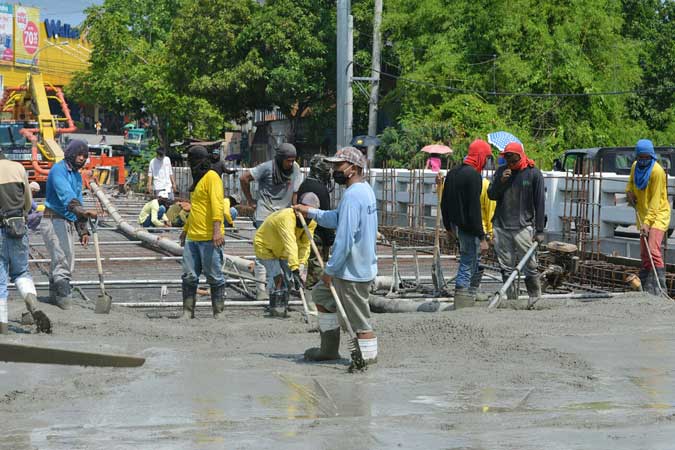STATE AGENCIES will have to significantly ramp up spending in December to boost fourth-quarter gross domestic product (GDP), after the government continued to underspend amid the coronavirus pandemic.
“The agencies were asked to implement catch-up plans to meet their original spending plans for the year. The catch up [spending plan] is intended to shore up the economy this Q4,” Budget Undersecretary Laura B. Pascua said via Viber on Friday.
Finance Secretary Carlos G. Dominguez III told various departments to ramp up spending in the remaining weeks of 2020, during a meeting of the Economic Development Cluster (EDC) two weeks ago.
Representatives from the Departments of Public Works and Highways (DPWH), Transportation (DoTr), Education (DepEd), Tourism (DoT), Trade and Industry (DTI), and Agriculture (DA) attended the EDC meeting, said Ms. Pascua.
Anemic government spending was blamed for the 11.5% GDP contraction in the third quarter, which was worse than most analysts expected but slightly better than the -16.9% GDP in the second quarter.
Government spending remained weak in October, declining by 6.84% year on year to P290 billion. Year to date, spending remained higher by 12.75% from a year ago to P3.312 trillion.
While some have suggested more fiscal stimulus is needed to ensure economic recovery, economic managers are not keen on another Bayanihan package.
Acting Socioeconomic Planning Secretary Karl Kendrick T. Chua said the government will have to focus on spending this year’s P4.1-trillion budget and the P140 billion allotted under Bayanihan II first, before another stimulus package is considered.
“Let’s prioritize spending fully the 2020 budget and Bayanihan II. Congress is also thinking of reallocating the 2021 budget to priority areas,” Mr. Chua told reporters in a Viber message on Nov. 25.
Two bills proposing another stimulus package, Bayanihan III, have been filed at the House of Representatives. A measure co-authored by House Ways and Means Committee Chair and Albay Rep. Jose Maria Clemente S. Salceda would provide P247 billion for stimulus measures, while another filed by House Defeat COVID-19 Committee Chair and Marikina Rep. Stella Luz A. Quimbo allocates P427 billion for recovery efforts.
“Another double-digit decline in GDP is possible this quarter if the government continues to underspend,” said Emilio S. Neri, Jr., the chief economist at the Bank of the Philippine Islands (BPI), in a note issued on Friday.
“The latest GDP report suggests that consumer confidence remains weak and its recovery will likely take a long time. Meanwhile, private businesses will not spend on expansion activities in an environment where consumer demand is weak. The government is the only institution right now that has the capacity to spend,” he added.
Mr. Neri noted state spending fell drastically in the third quarter from its 50% jump in the second quarter — when huge emergency grants and wage subsidy programs have been launched during lockdown. Government expenditures dipped 4.3% year on year in the third quarter, which also contributed to the 28% decline in public construction.
He said the economy could have recorded a softer decline in the third quarter if public construction and state spending on infrastructure did not contract.
Government spending on infrastructure declined by 33% to P153.5 billion between July and September, but was 12% higher than the P137-billion reduced target for the period.
Even the release of stimulus funds under Republic Act No. 11494 or the Bayanihan to Recover as One Act (Bayanihan II) has been delayed. The law will expire on Dec. 19.
As of Nov. 24, only P92.35 billion has been released or two-thirds of the P140-billion budget for Bayanihan II, while the remaining P25 billion in standby funds have not been tapped.
The economic team remained firm on maintaining fiscal prudence in anticipation of a prolonged battle against a coronavirus pandemic.
The Development Budget Coordination Committee (DBCC) will meet this week to review macroeconomic projections. — Beatrice M. Laforga
